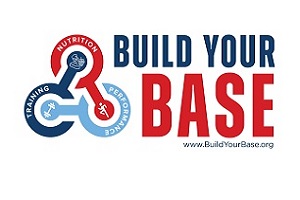The Athlete
Last month I discussed "The COACH" and it seems timely to write about the responsibilities and duties of his/her charges. Unfortunately, not all athletes want to do the work necessary to achieve much success.
Consider the kid who joins the team for social reasons. These kids want the wear the uniform and go to the meets not so much to perform well but just to be there. In practice they avoid putting forth their best effort since "�it hurts too much" "it's too hard"; "why should I, I can't beat Mary/Joe?"; and the worse, "who cares?" No coach can do much with these kids.
What about the athlete who only wants to compete in certain events? "I'm a long jumper so why do I have to train for the 400m?" Coach replies, "We may need you for a relay." Therefore, the kid dogs it in practice, doesn't get into good shape and becomes a liability due to his/her constant whining. Case in point, I once had a kid who was a long jumper as well as a fairly good sprinter. One day he was needed for the 4x400mR. He suddenly developed a limp, "I strained my hamstring" so I had to scratch him. Then, a few minutes later, I saw him again and he was still limping but this time on the OTHER leg! An athlete who cops out on his teammates isn't worth much.
Then there's the talented youngster who feels they can get by without practicing. This kid shows up when they feel like it. Ordinarily, a good coach would drop him/her from the team but the kid is so good he/she can win several events without practice and the coach needs those points. What would YOU do if you were the coach?
Many kids come out with a sincere desire to do well and improve. The problem is their lack of talent. Every team has its stars as well as their rumteeboolows (a word I learned from Frank Kiesecker, a splendid coach on Long Island). It's my belief you never cut a kid from the team. So the coach does their best. Strangely, these kids can provide an inspiration to the rest of the team. I once had a kid who was the most uncoordinated person I have ever seen. Unbelievably, he moved the same leg and arm at the same time! That's hard! Try it. He never missed practice, never placed in a meet and never complained. I wanted to give him a varsity letter in his senior year. To earn this award you had to score 10 points, for him, an impossibility. His only chance was to win a gold medal in a championship competition. We had the league champs coming up, his last opportunity to get a letter. We had a superb 4x800mR, four kids running under 2:00. I took the best three, all close to 1:55, and told them they had to run their best races ever. Naturally, they asked why and I told them "Joe" was running the anchor and they needed to give him a huge lead so the team would win and Joe would his letter. They ran the races of their lives and handed Joe" a 390m lead! With the crowd cheering loudly and the rest of the team urging him on, Joe WON! By about a foot! They carried him off the field.
Then you have the great kid. They live and breathe their event. You never have to worry about them. Ask them to run 8x400m with one minutes rest and they want to do 12x400m. Believe it or not, these kids can be trouble. Why? They tend to do too much. One year we had a wonderfully talented distance kid. A natural two-miler with 1:58 � 4:18 speed. I expected he'd not only win the two mile at our county meet but had a real chance of running close to 9:00, an awesome time at that time. He ran about 10:20 and finished last. I was dumbstruck, he was heart-broken. What happened?
Three days prior to the meet, the workout was to take a nice, easy run. He'd read where the great Czech runner Emil Zatopek had once run 5 miles wearing heavy Army combat boots. Zatopek was great�so, Joe went out and ran right miles wearing heavy Army combat boots. On the day of the meet, he was exhausted. Sometimes you can train too hard.
What about the kid who trains hard, does all you ask, races wonderfully well�and parties the same way? My team that broke the national distance medley record was like that. Running on an old wooden track against New York's best (one team was anchored by the great Matt Centrowitz) they raced 10:21.4, a mark that stood for over 20 years. When I visited with one of them a couple years ago, he told me, "We practiced hard but on the weekends after the meet�we let it go." I can only imagine what that meant.
Where do YOU fall in these categories? Do YOU have the self-discipline to always do your best? Can YOU control yourself when there is no one around to check on you? Have YOU the courage to set a goal and do what's necessary to achieve that goal? Do YOU have the will power to never do less than your best?
I want you to go to the library and read Rudyard Kipling's poem, "IF�" it ends like this,
"IF you can fill the unforgiving minute
with sixty seconds' worth of distance run,
Yours is the Earth and everything that's in it,
And---which is more---you'll be a Man, my son!




